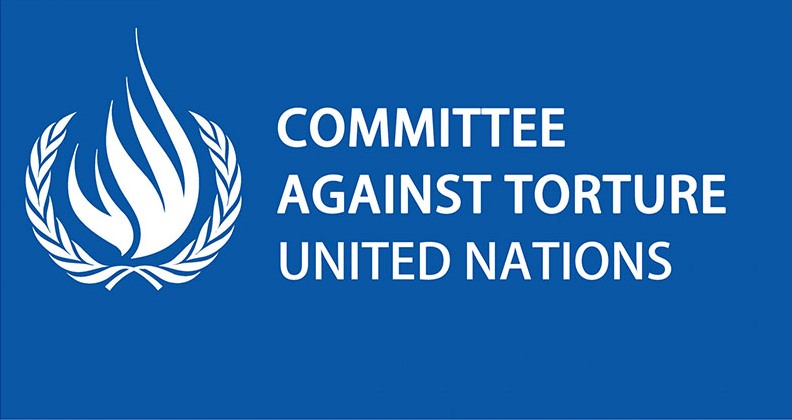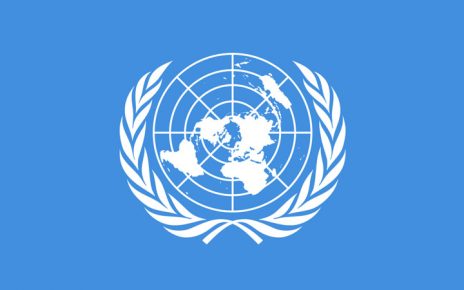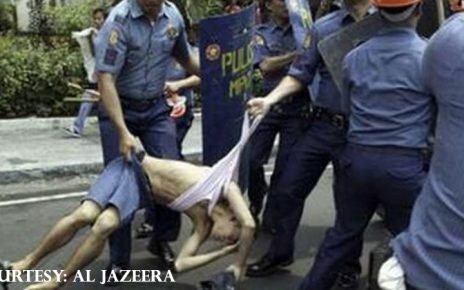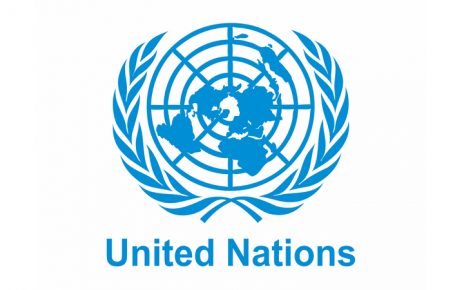The UN Committee against Torture on 7 December 2018 concluded its sixty-fifth session after adopting concluding observations and recommendations on the periodic reports of Canada, Guatemala, Maldives, the Netherlands, Peru and Viet Nam on the implementation of the provisions of the Convention against Torture and Other Cruel, Inhuman or Degrading Treatment or Punishment (UNCAT).[1]
The concluding observations contain positive aspects of the respective State’s implementation of the UNCAT as well as matters of concern and recommendations made.[2]
During the session the Committee had discussed follow-up to articles 19 and 22 and in relation to reprisals, and had adopted decisions on 15 communications: two violations, six non-violations, two inadmissibility decisions and had discontinued five cases.[3]
The Committee also adopted programmes of work for future sessions, deciding to review the reports of Benin, Democratic Republic of the Congo, Germany, Mexico, South Africa and the United Kingdom at its next session from 23 April to 17 May 2019; the reports of Greece, Poland, Togo and Bangladesh in the absence of initial report at the sixty-seventh session in July and August 2019; and the reports of Burkina Faso, Cyprus, Latvia, Niger, Portugal and Uzbekistan at the sixty-eighth session in November and December 2019.[4]
CAT considers follow-up to concluding observations, individual communications and reprisals
The Committee against Torture has on 6 December 2018 discussed follow-up to concluding observations, individual communications and reprisals under the UNCAT.[5]
The Rapporteur on follow-up to concluding observations under article 19 of the Convention, Abdelwahab Hani, has said that the Committee had considered reports from eight States parties, for which it had adopted a total of 25 recommendations, in five distinct categories: the culture of impunity, confessions under torture and ill treatment, and registry of complaints of acts of torture; reprisals against human rights defenders; the death penalty and corporal punishment; national prevention mechanisms and national human rights institutions; and police violence, conditions of detention, deaths in custody, and fundamental legal safeguards.[6]
The Rapporteur pointed out that 56 per cent of the recommendations issued to States parties were partially implemented or in an advanced state of implementation, and was alarmed that in 44 per cent of the cases, implementation was either entirely lacking or the Committee did not have sufficient information to assess the state of implementation. Mr. Hani informed that the Committee had decided to send requests for additional follow up information to two States, Turkmenistan and Saudi Arabia; from the latter, the Committee had requested additional information also on the disappearance of Jamal Khashoggi, which, in the Committee’s view, seemed to be an extrajudicial execution and involved acts of torture. The Committee was currently assessing additional information received from Governments and civil society organizations from Ireland and Lebanon, and it had called upon States reviewed during the sixty-second session to provide their follow up reports: Bosnia and Herzegovina, Bulgaria, Cameroon, Italy, Mauritius, Republic of Moldova and Timor-Leste.[7]
Claude Heller Roussant, Rapporteur on follow-up to individual communications informed that during the session, the Committee had considered eight communications and had decided to close on merit the case concerning Denmark, while the case concerning deportation by Sweden of an Iranian citizen had been successfully resolved with Sweden’s implementation of the Committee’s decision. There were five additional cases where the Committee had decided to wait for additional information from States parties, namely on two cases involving Morocco, and one case each from Australia, Canada and Mexico. The Rapporteur remarked that over the past several years, there was a trend of States parties not responding to the Committee’s communications.[8]
Sub-committee on Prevention of Torture (SPT)
SPT to visit Bulgaria, Cabo Verde, Ghana and the United Kingdom in 2019
On 5 December 2018, the UN’s Subcommittee on Prevention of Torture (SPT) announced that in the coming months it will visit Bulgaria, Cabo Verde, Ghana and the United Kingdom. Visits to Costa Rica, Senegal and Switzerland have already been announced earlier. The visits were decided during the Subcommittee’s confidential session held in Geneva in November.[9]
The SPT has so far completed more than 65 visits and in 2018 the subcommittee visited Belize, Kyrgyzstan, Liberia, Poland, Portugal and Uruguay. Confidential reports on the visits to Uruguay and Portugal have been sent to the States authorities as well as to the National Preventive Mechanism of these countries.[10]
EU’s action against torture
(i) Council of Europe anti-torture Committee visits Bulgaria
A delegation of the Council of Europe’s Committee for the Prevention of Torture and Inhuman or Degrading Treatment or Punishment (CPT) carried out an ad hoc visit to Bulgaria from 10 to 17 December 2018.[11]
The objective of the visit was to examine the treatment and conditions of detention of foreign nationals detained under aliens legislation. The CPT’s delegation visited Border Police detention facilities in Elhovo, Sofia Airport and Svilengrad (Kapitan Andreevo) and carried out follow-up visits to the Special Homes for Temporary Accommodation of Foreigners in Busmantsi and Lyubimets. In Busmantsi, the delegation also paid a visit to the Closed-Type Premises run by the State Agency for Refugees (SAR).[12]
During the visit, the delegation held consultations with Deputy Minister of Internal Affairs Krasimir Tsipov and other senior officials from the Ministry, the National Police, the Border Police and the Migration Directorate. The delegation also met Maya Manolova, Ombudsperson, and staff of the National Preventive Mechanism (NPM). The team also held meetings with the Representative of the United Nations High Commissioner for Refugees (UNHCR) and with members of non-governmental organisations active in areas of concern to the CPT.[13]
At the end of the visit, the delegation presented its preliminary observations to the Bulgarian authorities and a detailed report on the visit will be submitted to the Government.[14]
(ii) Council of Europe anti-torture Committee visits Albania
A delegation of the Council of Europe’s Committee for the Prevention of Torture and Inhuman or Degrading Treatment or Punishment (CPT) carried out a periodic visit to Albania from 20 to 30 November 2018.[15]
The main objective of the visit was to review progress made as regards the implementation of recommendations made by the Committee after its previous visits. The team primarily focused on the treatment and conditions of detention of persons in police custody and of inmates in several prison establishments, as well as to the situation of forensic psychiatric patients and mentally-ill prisoners. To that effect, the delegation carried out visits to civil psychiatric establishments and, for the first time in Albania, to an immigration detention facility.[16]
The delegation had consultations with Etilda Gjonaj, Minister of Justice, Toni Gogu, Deputy Minister of Justice, Romina Kuko, Deputy Minister of the Interior, Adriana Jaku, Deputy Minister of Health and Social Protection, and Stefan Çipa, Director General of Prisons, as well as with other senior officials from the above-mentioned ministries. The delegation also held discussions with representatives of the Office of the People’s Advocate, including the Head of the National Preventive Mechanism set up under the Optional Protocol to the United Nations Convention against Torture (OPCAT).[17]
At the end of the visit, the delegation presented its preliminary observations to the Albanian authorities.[18]
(iii) Council of Europe anti-torture Committee visits France
A delegation of the Council of Europe’s Committee for the Prevention of Torture and Inhuman or Degrading Treatment or Punishment (CPT) carried out an ad hoc visit to France from 23 to 30 November 2018.[19]
The main objective of the visit was to examine the treatment and conditions of detention of persons deprived of their liberty under immigration and asylum law. During the visit, the delegation held consultations with senior officials of the Ministry of the Interior and of the Ministry of Solidarity and Health. The delegation also held meetings with Adeline Hazan, General Controller of Places of Deprivation of Liberty, and Jacques Toubon, Defender of Rights, as well as with members of associations and non-governmental organisations active in areas of concern to the CPT.[20]
At the end of the visit, the delegation presented its preliminary findings to the French authorities during a meeting with Laurent Nuñez, Secretary of State to the Minister of the Interior.[21]
(iv) Council of Europe anti-torture Committee visits Hungary
A delegation of the Council of Europe’s Committee for the Prevention of Torture and Inhuman or Degrading Treatment or Punishment (CPT) carried out a periodic visit to Hungary from 20 to 29 November 2018. The delegation’s main focus of the visit was on the situation of persons in police custody, prisoners placed in HSR units (special regime units for inmates serving long sentences, including whole life sentences), juvenile prisoners and persons placed in social care homes. The visit marked the CPT’s tenth visit to Hungary.[22]
During the visit, the delegation held consultations with Károly Papp, Director General for Public Safety, Tamás Tóth, Head of the Prison Service, and other representatives of the Ministry of the Interior responsible for police, prisons and immigration issues, as well as with senior officials of the Ministry of Human Capacities in charge of social care matters.
The delegation also held meetings with László Székely, Commissioner for Fundamental Rights (Ombudsman) and staff of the National Preventive Mechanism, as well as with members of the Regional Representation for Central Europe of the United Nations High Commissioner for Refugees (UNHCR) and of non-governmental organisations active in areas of concern to the CPT.[23]
At the end of the visit, the delegation presented its preliminary findings to the competent authorities.[24]
(v) Council of Europe calls on Greece to reform its law on torture
The Council of Europe has called on Greece to improve its law and practice on the prosecution of torture. In a decision[25] issued on 6 December 2018, the Committee of Ministers increased the pressure on Greece to implement the decisions of the European Court of Human Rights in Zontul Necati v Greece[26] and several other cases.[27]
Way back in 2012, the ECHR decided in favour of victim Necati, recognising that rape can be a particularly cruel form of torture, and that Greece did not adequately punish the perpetrators or afford redress to Necati. It concluded that Greece had breached Article 3 of the European Convention on Human Rights. The case also found that Greek law was incompatible with the country’s international obligations to prevent and prosecute torture.[28]
Through the decision issued on 6 December 2018, the Committee of Ministers issued a very strong decision seeking a detailed set of information from Greece by September 2019. The Committee called upon the authorities to intensify their ongoing efforts to eradicate all forms of ill-treatment by law enforcement officials, taking due account of the CPT’s recommendations, and invited them to provide the Committee with concrete and detailed information on the measures.[29]
Greece is now obliged to provide documented information about the effectiveness of the Ombudsman as an Independent Complaints Mechanism. This relates not only to the reopening of investigations in old cases, but also to reviewing new complaints. Greece must also amend its legislation to bring the definition of torture in line with international standards and prevent the conversions of imprisonment imposed for torture and other ill-treatment into fines. The state must also provide information on the investigation of possible racist motives when ill-treatment occurs in the context of law enforcement; and, finally, implement its commitment to issue written apologies to the victims.[30]
It is hoped that the required reforms would provide greater access to justice for the victims of torture and ill-treatment in Greece, particularly migrants and refugees. Greece is a major point of entry for those trying to reach Europe. The decision of the Committee also welcomed the news that the Greek government will seek to apologise formally to the victims of torture and ill-treatment.[31]
Endnotes:
[1]. Committee against Torture closes sixty-fifth session, OHCHR, 7 December 2018, https://www.ohchr.org/EN/NewsEvents/Pages/DisplayNews.aspx?NewsID=23995&LangID=E
[2]. Concluding Observations available at: https://tbinternet.ohchr.org/_layouts/treatybodyexternal/SessionDetails1.aspx?SessionID=1237&Lang=en
[3]. Committee against Torture closes sixty-fifth session, OHCHR, 7 December 2018, https://www.ohchr.org/EN/NewsEvents/Pages/DisplayNews.aspx?NewsID=23995&LangID=E
[4]. Committee against Torture closes sixty-fifth session, OHCHR, 7 December 2018, https://www.ohchr.org/EN/NewsEvents/Pages/DisplayNews.aspx?NewsID=23995&LangID=E
[5]. Committee against Torture considers follow-up to concluding observations, individual communications and reprisals, OHCHR, 6 December, https://www.ohchr.org/EN/NewsEvents/Pages/DisplayNews.aspx?NewsID=23987&LangID=E
[6]. Committee against Torture considers follow-up to concluding observations, individual communications and reprisals, OHCHR, 6 December, https://www.ohchr.org/EN/NewsEvents/Pages/DisplayNews.aspx?NewsID=23987&LangID=E
[7]. Committee against Torture considers follow-up to concluding observations, individual communications and reprisals, OHCHR, 6 December, https://www.ohchr.org/EN/NewsEvents/Pages/DisplayNews.aspx?NewsID=23987&LangID=E
[8]. Committee against Torture considers follow-up to concluding observations, individual communications and reprisals, OHCHR, 6 December, https://www.ohchr.org/EN/NewsEvents/Pages/DisplayNews.aspx?NewsID=23987&LangID=E
[9]. UN torture prevention body to visit Bulgaria, Cabo Verde, Ghana and the United Kingdom in 2019, OHCHR, 5 December 2018, https://www.ohchr.org/EN/NewsEvents/Pages/DisplayNews.aspx?NewsID=23975&LangID=E
[10] . UN torture prevention body to visit Bulgaria, Cabo Verde, Ghana and the United Kingdom in 2019, OHCHR, 5 December 2018, https://www.ohchr.org/EN/NewsEvents/Pages/DisplayNews.aspx?NewsID=23975&LangID=E
[11]. Council of Europe anti-torture Committee visits Bulgaria to assess the situation of foreign nationals detained under aliens legislation, Council of Europe, 18 December 2018, https://www.coe.int/en/web/cpt/-/council-of-europe-anti-torture-committee-visits-bulgaria-to-assess-the-situation-of-foreign-nationals-detained-under-aliens-legislation
[12]. Council of Europe anti-torture Committee visits Bulgaria to assess the situation of foreign nationals detained under aliens legislation, Council of Europe, 18 December 2018, https://www.coe.int/en/web/cpt/-/council-of-europe-anti-torture-committee-visits-bulgaria-to-assess-the-situation-of-foreign-nationals-detained-under-aliens-legislation
[13]. Council of Europe anti-torture Committee visits Bulgaria to assess the situation of foreign nationals detained under aliens legislation, Council of Europe, 18 December 2018, https://www.coe.int/en/web/cpt/-/council-of-europe-anti-torture-committee-visits-bulgaria-to-assess-the-situation-of-foreign-nationals-detained-under-aliens-legislation
[14]. Council of Europe anti-torture Committee visits Bulgaria to assess the situation of foreign nationals detained under aliens legislation, Council of Europe, 18 December 2018, https://www.coe.int/en/web/cpt/-/council-of-europe-anti-torture-committee-visits-bulgaria-to-assess-the-situation-of-foreign-nationals-detained-under-aliens-legislation
[15]. Council of Europe anti-torture Committee visits Albania, Council of Europe, 4 December 2018, https://www.coe.int/en/web/cpt/-/council-of-europe-anti-torture-committee-visits-alban-1
[16]. Council of Europe anti-torture Committee visits Albania, Council of Europe, 4 December 2018, https://www.coe.int/en/web/cpt/-/council-of-europe-anti-torture-committee-visits-alban-1
[17]. Council of Europe anti-torture Committee visits Albania, Council of Europe, 4 December 2018, https://www.coe.int/en/web/cpt/-/council-of-europe-anti-torture-committee-visits-alban-1
[18]. Council of Europe anti-torture Committee visits Albania, Council of Europe, 4 December 2018, https://www.coe.int/en/web/cpt/-/council-of-europe-anti-torture-committee-visits-alban-1
[19]. Council of Europe anti-torture Committee visits France, Council of Europe, 4 December 2018, https://www.coe.int/en/web/cpt/-/council-of-europe-anti-torture-committee-visits-fran-1
[20]. Council of Europe anti-torture Committee visits France, Council of Europe, 4 December 2018, https://www.coe.int/en/web/cpt/-/council-of-europe-anti-torture-committee-visits-fran-1
[21]. Council of Europe anti-torture Committee visits France, Council of Europe, 4 December 2018, https://www.coe.int/en/web/cpt/-/council-of-europe-anti-torture-committee-visits-fran-1
[22]. Council of Europe anti-torture Committee visits Hungary, Council of Europe, 30 November 2018, https://www.coe.int/en/web/cpt/-/council-of-europe-anti-torture-committee-visits-hungary
[23]. Council of Europe anti-torture Committee visits Hungary, Council of Europe, 30 November 2018, https://www.coe.int/en/web/cpt/-/council-of-europe-anti-torture-committee-visits-hungary
[24]. Council of Europe anti-torture Committee visits Hungary, Council of Europe, 30 November 2018, https://www.coe.int/en/web/cpt/-/council-of-europe-anti-torture-committee-visits-hungary
[25]. Decision available at: https://search.coe.int/cm/Pages/result_details.aspx?ObjectID=09000016808fddda
[26]. In 2001, Necati Zontul, a Turkish man, was travelling on a boat with other migrants when he was intercepted by Greek coastguards. The coastguards then detained the passengers in a disused school in Crete. A week into Necati’s detention a coastguard trapped him in a toilet and raped him with a truncheon, while another guard kept lookout. Following a flawed domestic investigation and prosecution of the Coast guard officers responsible for his treatment, REDRESS helped Necati to bring a case against Greece at the European Court of Human Rights. The ECHR heavily criticised the Greek authorities for their internal investigation of the incident, in which they falsified Necati’s evidence, and for the lenient penalty imposed on the perpetrator of the rape – a suspended sentence commuted to a small fine
[27]. Council of Europe calls on Greece to reform its law on torture, REDRESS, 6 December 2018, https://redress.org/news/council-of-europe-torture-reform-needed-in-greece/
[28]. Zontul c. Grèce, 12294/07, Council of Europe: European Court of Human Rights, 17 January 2012, available at: https://www.refworld.org/cases,ECHR,4f16cabe2.html
[29]. Supervision of the execution of the European Court’s judgments, 1331st meeting, 4-6 December 2018 (DH), Reference document\CM/Notes/1331/H46-13, available at: https://search.coe.int/cm/Pages/result_details.aspx?ObjectID=09000016808fddda
[30]. Torture and ill-treatment by police officers in Greece, European Implementation Network, 12 December 2018, http://www.einnetwork.org/ein-voices/2018/12/12/ill-treatment-by-police-officers-in-greece-the-makaratzis-group-of-cases
[31]. Council of Europe calls on Greece to reform its law on torture, REDRESS, 6 December 2018, https://redress.org/news/council-of-europe-torture-reform-needed-in-greece/




